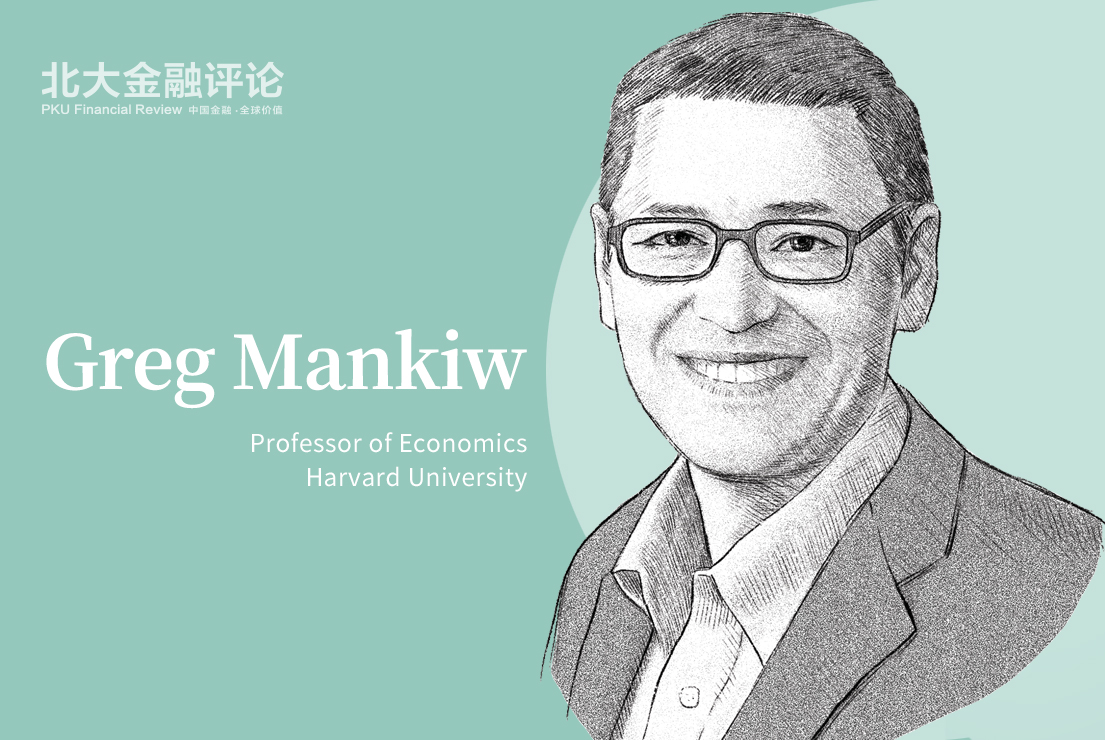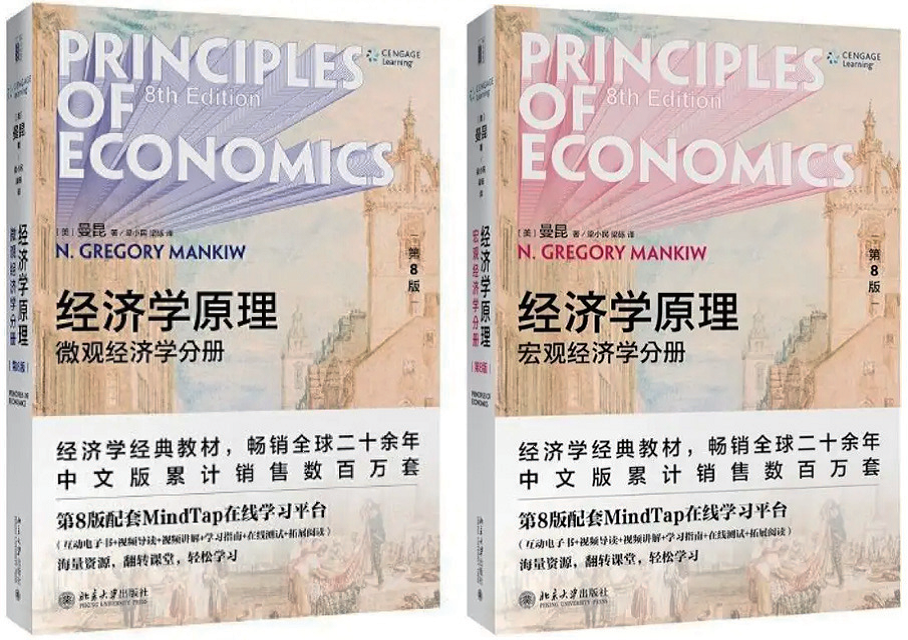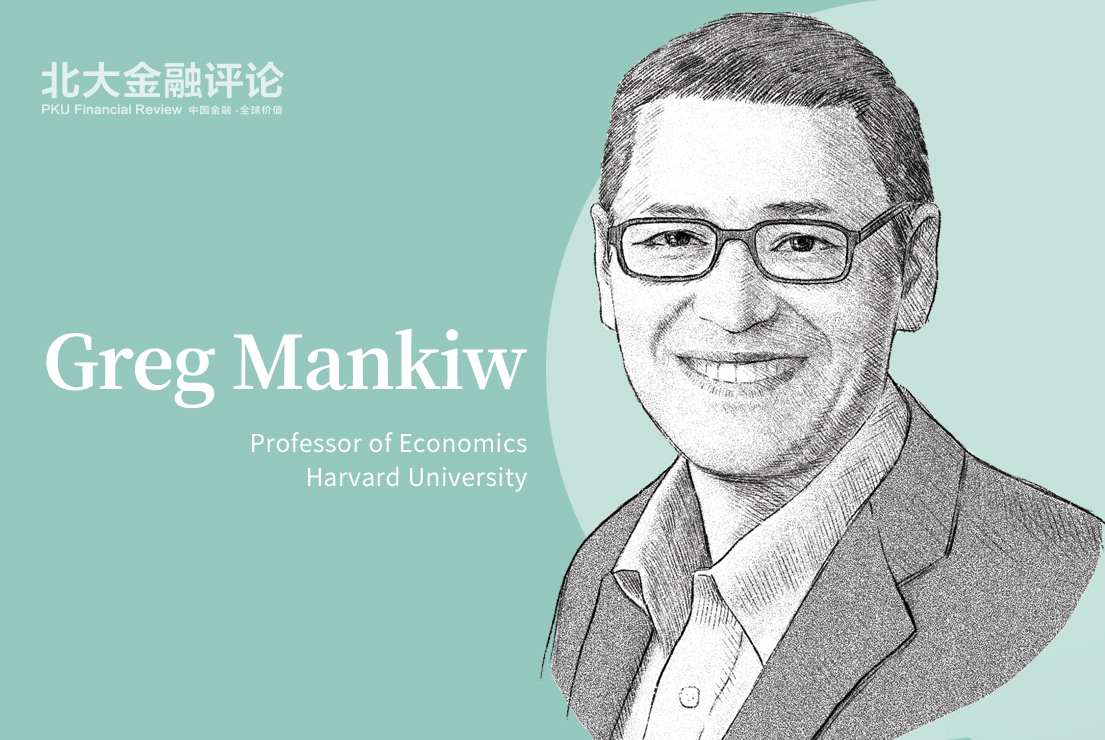“Inequality has always had its own chapter in my textbook”
PKU Financial Review: Professor Mankiw, now many economists have begun to study "inequality", such as Piketty's Capital in the Twenty-First Century. The study of inequality or common prosperity has become the mainstream. What do you think of this phenomenon? Do you think economics textbooks need to be changed accordingly?
Greg Mankiw: Inequality is an important topic and always has been. I remember first thinking about it as an undergraduate more than 40 years ago, when I read Arthur Okun’s great book
Equality and Efficiency: The Big Tradeoff. The topic has always had its own chapter in my textbook
Principles of Economics.
As a professor of economics at Harvard University, Greg Mankiw states, the purpose of Ec10 seminars and
Principles of Economics is to introduce various and multiple economic concepts, especially concepts on economic growth.
“US policies are to blame”
PKU Financial Review: What do you think of the current high inflation in the United States? Do you think it is the result of long-term low interest rates and quantitative easing policies, or the global supply chain crisis?
Greg Mankiw: The answer is both. Economic fluctuations in output and prices are driven by the interaction of aggregate supply and aggregate demand. Both have contributed to rising inflation over the past couple of years. And monetary and fiscal policy are important factors influencing aggregate demand. So policies are to blame, but only partly.
“Long-term low interest rate is wrong”
PKU Financial Review: We recently read your paper "Government Debt and Capital Accumulation in an Era of Low Interest Rates", in which you specifically discussed the impact of perpetual debt rollover caused by low interest rates on labor productivity, wages and consumption. After the Subprime Mortgage Crisis in the United States, it seems that private debt has become more stable, and the debt is concentrated in the government sector. What kind of risks do you think a country like the United States will have?
Greg Mankiw: Low real interest rates have given policymakers the sense that they don’t need to worry about the growing government debt. I think that is wrong. A Ponzi-like scheme of perpetual debt rollover might fail, and a failure would require sizable tax hikes or spending cuts at precisely the wrong time. And even if a perpetual debt rollover succeeds from a budgetary standpoint, the debt would still crowd out private capital accumulation, reducing productivity, real wages, and consumption.
Greg Mankiw is New Keynesianism Moderates, who advocates multiple values and prudent economic paradigm. He always keeps an eye on long-term low interest rate and radical policies.
“Global carbon tax is impossible”
PKU Financial Review: You have always been a supporter of Pigouvian taxes. How do you think countries should levy carbon taxes in the face of global warming? Should each country act in its own way, or should all countries in the world work together to come up with a general carbon tax standard?
Greg Mankiw: Ideally, a global carbon tax is best (though it could be collected at the national level). But the international negotiations required to make that happen may be impossible. When dealing with climate change, we should be careful not to let the best be the enemy of the good.
Greg Mankiw holds the opinion that “global warming” is also a kind of “market failure”, both in long term and short term. Carbon dioxygen emission is a typical external behavior, who pollutes, who pays.

N. Gregory Mankiw is the Robert M. Beren Professor of Economics at Harvard University
* This article has been initially published in PKU Financial Review.

















